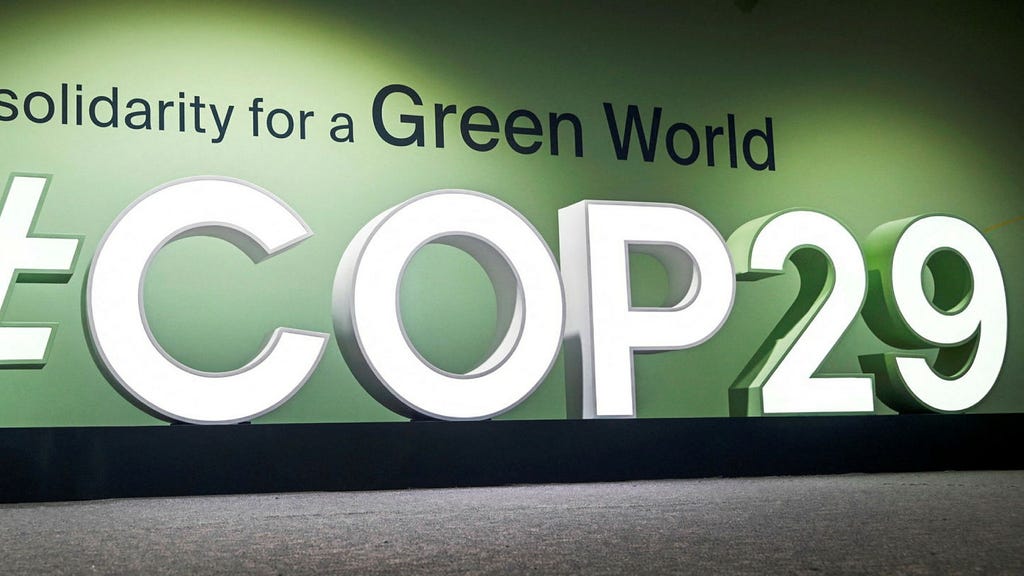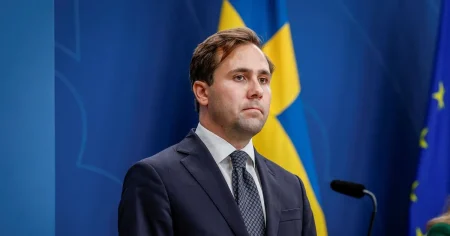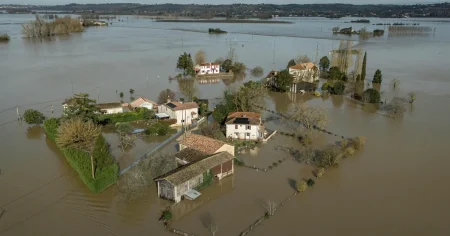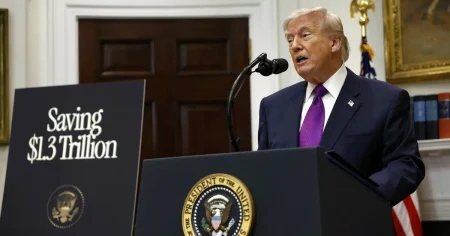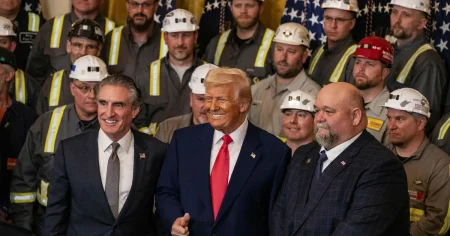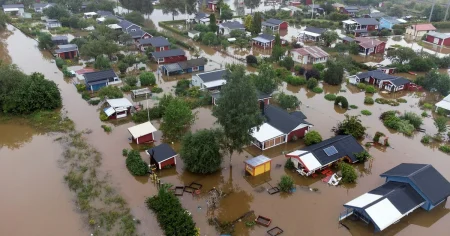The 2024 UN Climate Change Conference (COP28), held in Azerbaijan, has been met with a subdued atmosphere despite projections indicating that 2024 will be the warmest year on record. This muted response is attributable to several factors, most notably the non-attendance of key world leaders like Joe Biden, Olaf Scholz, Emmanuel Macron, Ursula von der Leyen, and Ulf Kristersson. Furthermore, the conference is being perceived as a ”transitional meeting,” a bridge between the landmark agreement of COP27, where fossil fuels were explicitly identified as the core problem, and COP29 in Brazil, where nations will submit updated emission reduction plans for 2035. This interim nature has contributed to a sense of diminished urgency and lowered expectations for significant breakthroughs.
Adding to the complexity and dampened enthusiasm is the looming shadow of Donald Trump’s victory in the US presidential election. This development has significantly depleted the energy and momentum surrounding climate negotiations, casting a pall of uncertainty over future global climate action. Trump’s stated intention to withdraw from the Paris Agreement raises concerns about a potential leadership vacuum in the global climate fight, adding pressure on other nations to step up and maintain the progress made thus far. The financial implications of a US withdrawal are also substantial, given the country’s significant contribution to international climate finance. This financial uncertainty further complicates negotiations and hinders progress toward meaningful agreements.
A central theme at COP28 is financial support from wealthy nations to developing countries. This topic has become a major point of contention, especially in light of Trump’s anticipated reduction in US contributions. The negotiations revolve around who pays for the global energy transition and the consequences of climate change, and how much aid should be provided. Current UN estimates suggest a need for $1 trillion annually, ten times the current target, and some argue that even this substantial sum is insufficient. These stark figures underscore the scale of the challenge and the deep divisions between developed and developing nations on the issue of financial responsibility.
The classification of countries as ”rich” or ”poor” remains another significant sticking point. The existing categorization, based on a list from the 1990s, includes nations like China among developing countries, a classification challenged by the EU and USA. They argue for an updated list that reflects current economic realities, aiming to broaden the base of contributing nations and share the financial burden. This debate is particularly crucial now, given the anticipated reduction in US funding. The outcome of these negotiations will reveal which nations, if any, are prepared to fill the financial gap left by a potential US retreat. The willingness of other developed nations, and potentially emerging economies like China, to increase their contributions will be a key indicator of the future direction of international climate finance.
The psychological impact of Trump’s victory extends beyond financial considerations. His rejection of the Paris Agreement creates uncertainty about the future of global climate leadership, placing added importance on interim meetings like COP28. The conference serves as a critical platform for other nations to reaffirm their commitment to the Paris Agreement and to demonstrate their willingness to lead in the face of US withdrawal. It offers an opportunity to solidify existing alliances and forge new ones, building a broader coalition committed to climate action despite the shifting political landscape.
The outcome of COP28 will be a crucial test of global resolve in addressing climate change. It will reveal which nations are prepared to step up and lead in the face of US retrenchment, and whether the international community can maintain momentum toward the Paris Agreement goals. The conference will also highlight the ongoing tensions between developed and developing nations on issues of finance and responsibility, and the ability of the global community to find common ground and forge a path forward. The results will not only shape the agenda for COP29 in Brazil but also signal the long-term trajectory of global climate action in a world grappling with the complex realities of geopolitical shifts and economic uncertainties.





